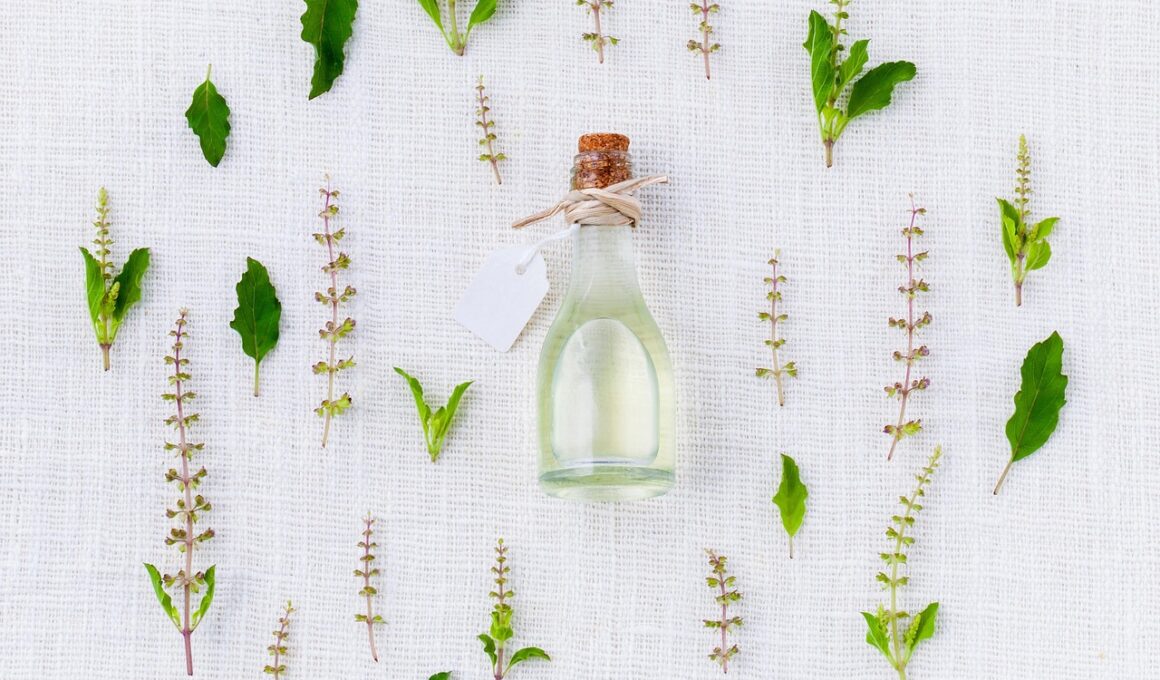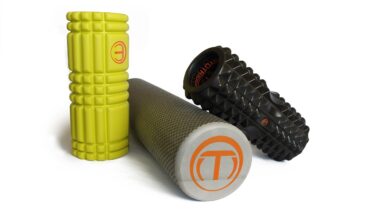Herbal Approaches to Reduce Muscle Cramps and Inflammation
Muscle cramps can be a distressing issue for athletes and fitness enthusiasts alike. These involuntary contractions may occur due to various factors, including dehydration, fatigue, or nutrient deficiencies. One effective way to combat muscle cramps is through herbal performance enhancers. Herbs such as ginger, turmeric, and willow bark have been known to help reduce inflammation and improve muscle recovery. Incorporating these herbs into your daily routine can lead to a noticeable difference in preventing cramps during workouts. Additionally, stay hydrated, as proper fluid intake is crucial for muscle function. Always consult a healthcare professional before beginning any supplementation, particularly if you have underlying health conditions or are pregnant. Understanding the sources of these herbs and their proper dosages can significantly enhance their effectiveness. Also, pay attention to how your body reacts to each herb, as individual responses can vary greatly. Create a balance in your diet and consider combining these herbs with other sources of essential nutrients to maximize their benefits in muscle recovery and inflammation reduction.
Another effective herbal approach to alleviating muscle cramps and inflammation includes utilizing the power of noni and moringa. Both of these plants are celebrated for their anti-inflammatory properties. The noni fruit is rich in antioxidants, helping the body combat oxidative stress that contributes to muscle soreness. On the other hand, moringa leaves are packed with vitamins and amino acids essential for muscle repair. Incorporating moringa powder into smoothies or noni juice into your post-workout routine can offer comfort and diminish the likelihood of cramps. Add these herbal supplements gradually, monitoring your body for any adverse reactions. Using natural remedies can be a beneficial alternative to pharmaceutical options when seeking relief from muscle discomfort. Furthermore, consult with a nutritionist experienced in herbal supplements to tailor your approach. A professional can provide personalized advice regarding dosages, ensuring optimal results. By adopting these herbs into your regimen, you can cultivate a holistic approach to muscle wellness, leading to more effective workouts and enhanced performance.
Massage and stretching are also effective ways to mitigate muscle cramps. While herbs can provide pain relief internally, external methods can enhance flexibility and circulation. Consider using essential oils from herbs like peppermint and rosemary during massages to promote relaxation. These oils are known for their analgesic and anti-inflammatory properties, which contribute to muscle recovery. Adding a few drops of these essential oils to a carrier oil facilitates easy application. Regular stretching can significantly reduce the risk of cramps, especially before and after workouts. Stretching helps improve blood flow and increases the flexibility of muscles, potentially preventing the onset of cramps. Integrating daily stretching exercises into your routine not only prepares your body for activity but also aids in recovery after intense training sessions. Pairing these practices with your herbal supplementation provides a well-rounded strategy. Together, they support muscle health and overall performance, keeping you in optimal shape to pursue your fitness goals and enjoy the benefits of an active lifestyle.
Using Herbal Supplements for Enhanced Performance
Incorporating herbal supplements such as ashwagandha and bacopa monnieri can further enhance athletic performance while addressing muscle cramps and inflammation. Ashwagandha, an adaptogen, helps the body manage stress and may enhance endurance during workouts. By reducing stress and anxiety levels, athletes are better equipped to perform at their peak. Bacopa monnieri, traditionally used in Ayurvedic medicine, has neuroprotective effects and supports cognitive function. Improved focus during training can lead to better results and minimize the likelihood of fatigue-induced cramps. Again, it’s essential to consult with a healthcare professional when incorporating new supplements into your routine. They can help guide the correct dosages and monitor potential interactions with other medications. Combining these herbs with a balanced diet and appropriate hydration makes for a comprehensive approach to muscle health. Additionally, it is beneficial to keep track of your progress, noting any improvements or setbacks in your performance. This proactive approach not only enhances training outcomes but also contributes to long-term well-being and resilience in the face of athletic challenges.
Physical activity induces a variety of stresses on your muscles, which can lead to inflammation and cramping. To reduce these effects naturally, consider dietary adjustments alongside herbal supplementation. Options rich in omega-3 fatty acids, such as flaxseed and chia seeds, can reduce muscle inflammation when coupled with regular intake of herbal remedies like turmeric. Turmeric contains curcumin, renowned for its powerful anti-inflammatory effects. Incorporating turmeric in your meals, whether through golden milk or in cooking, enhances flavor while supporting muscle recovery. A balanced diet including fresh fruits and vegetables, lean proteins, and whole grains complements the use of herbal supplements and mitigates muscle discomfort effectively. Emphasizing nutrient-dense foods can lead to better overall health and improve your performance in sports and fitness activities. Maintain consistent meal patterns that provide the necessary energy levels for your routines. When energy levels are optimized through proper nutrition, the incidence of cramps can decrease significantly. Through these holistic dietary strategies, athletes can empower themselves to recover faster, perform better, and enjoy more extended, injury-free training sessions.
The Role of Hydration in Muscle Health
Alongside herbal approaches, hydration plays a critical role in preventing muscle cramps. Dehydration can lead to electrolyte imbalances, worsening muscle fatigue and increasing cramp likelihood. Consuming beverages rich in electrolytes is vital, but herbal teas can also contribute to your hydration goals. Herbal options like chamomile and hibiscus teas are hydrating and offer anti-inflammatory benefits, beneficial after intense workouts. Create your hydration strategy by monitoring fluid loss during exercise, adjusting your intake accordingly. As a rule of thumb, drink water regularly throughout the day, focusing on pre-workout hydration and post-workout recovery. Dehydrated muscles are more prone to cramping; hence, adequate hydration is key to overall muscle health. Pairing proper hydration with your chosen herbs allows them to work effectively in repairing muscle tissue. Always listen to your body; if you feel thirsty, rehydrate promptly. Herbal infusions can also make hydration enjoyable, providing added flavors and nutrients. With a thoughtful hydration plan, athletes can minimize cramping and enhance overall performance, furthering their fitness journey.
Finally, consider lifestyle factors that contribute to muscle cramps and inflammation. Stress management is crucial in reducing muscle tightness, which can precipitate cramping. Techniques such as yoga and meditation may promote relaxation and improve flexibility, addressing potential root causes of muscle discomfort. In addition, obtaining sufficient sleep allows the body to recover fully. Ensuring adequate rest gives your muscles time to repair and regain strength, reducing the risk of cramps during workouts. Incorporate calming evening routines that promote restorative sleep. Furthermore, addressing any pre-existing health conditions with a medical professional can have a positive impact on muscle health and cramping issues. This comprehensive approach, combining herbal remedies, nutrition, hydration, stretching, and stress management, creates a balanced framework for athletes. By understanding and respecting their bodies, athletes can significantly enhance their performance while minimizing the occurrence of muscle cramps and inflammation. Integrating these practices will not only improve athletic performance but also contribute to a healthier, more active lifestyle.
In conclusion, utilizing herbal supplements for muscle health offers compelling advantages for anyone engaged in physical activities. The synergistic effect of hydration, balanced nutrition, and mindful practices provides a holistic way to combat muscle cramps and inflammation. Regularly integrating herbs like ginger, turmeric, moringa, and ashwagandha into your routine can pave the way for optimal recovery and performance. Additionally, enhancing your approach with stress-relief techniques and consistent hydration creates a comprehensive wellness strategy. Always make informed decisions regarding supplements by consulting with healthcare professionals when necessary. As you explore herbal performance enhancers, remember to listen to your body and adapt your strategies accordingly. Track your progress and remain patient; enhancing performance is a gradual journey. By adopting these herbal approaches, athletes can cultivate resilience and strength while enjoying the many benefits of a well-rounded fitness regimen. Ultimately, this dedication to incorporating herbal remedies instills a proactive mindset towards overall health. Aiming for continuous improvement will lead you toward a successful and injury-free athletic experience.


